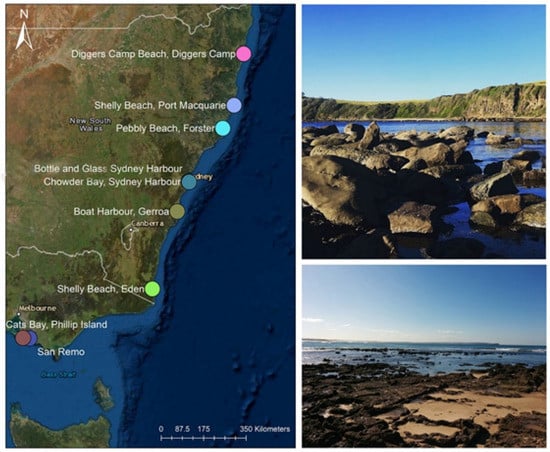Yes, it is safe to camp on the beach. Beach camping can be a fun and adventurous experience, allowing you to sleep under the stars and wake up to the sound of crashing waves.
Not only does it offer a unique opportunity to connect with nature, but it also provides stunning views and a chance to engage in various water activities. However, it is essential to take necessary precautions, such as camping in designated areas, checking the tide timings, being aware of potential natural hazards, and following the local rules and regulations.
By doing so, you can ensure a safe and enjoyable beach camping experience. So, pack your gear and get ready to enjoy camping with an ocean view.

Credit: www.summitdaily.com
Understanding The Factors That Influence Beach Camping Safety
Camping on the beach can be an exciting and memorable experience, but safety should always be your top priority. Being aware of the factors that can influence beach camping safety is crucial for ensuring a risk-free adventure. From weather conditions and tides to evaluating the terrain, here are the key points to consider:
Weather Conditions And Their Impact
- Keep an eye on the forecast: Check the weather forecast before heading out to camp on the beach. Sudden changes in weather can have a significant impact on your safety.
- Strong winds and storms: High winds can make tent setup challenging and potentially dangerous. Storms can bring lightning, heavy rain, and rough seas, posing a threat to campers.
- Extreme temperatures: Both hot and cold weather extremes can be hazardous. Heatstroke or hypothermia are risks to be mindful of, depending on the climate of the beach you’re camping on.
Tides And Their Potential Dangers
- Know the tide schedules: Familiarize yourself with the local tide schedules. Being caught unaware by high tides can put you and your camping equipment at risk.
- Rip currents: Be aware of the presence of rip currents, especially if you plan on swimming. These powerful, narrow currents can drag you away from shore and make it difficult to return.
- Changing coastline: The beach is a dynamic environment, and the coastline may shift over time. Pay attention to any cliff edges or eroded areas near your campsite as they can pose a hazard.
Evaluating The Terrain And Its Risks
- Check for stability: Before setting up your campsite, evaluate the stability of the ground. Soft sandy areas might not provide a stable foundation for tents or campfires.
- Beware of wildlife: Research the local wildlife and know what to expect. Keep food securely stored to prevent attracting animals and causing any potential conflicts.
- Consider the proximity to the water: Camping too close to the water can be risky. Unexpected high tides or rogue waves could reach your campsite, especially during stormy weather.
Remember, being prepared is essential to ensure a safe beach camping experience. Stay vigilant, check the weather, tides, and terrain, and always prioritize your safety and that of your fellow campers. With proper planning, you can enjoy an unforgettable beach camping adventure while minimizing the risks.
Stay safe and have fun!
Essential Safety Measures To Take When Camping On The Beach
Camping on the beach can be an exciting and adventurous experience. The sound of crashing waves, the cool ocean breeze, and the stunning sunset views are just some of the perks of beach camping. However, it’s important to prioritize safety when enjoying this outdoor activity.
Here are some essential safety measures to keep in mind when camping on the beach:
Choosing A Safe Camping Spot
- Look for high ground: Before setting up your campsite, it’s crucial to find a location on higher ground. This will help prevent any potential hazards associated with high tide or unexpected weather conditions.
- Avoid the dunes: While the sand dunes might seem tempting for a camping spot, it’s essential to avoid them. Sand dunes play a crucial role in protecting coastal ecosystems, and camping on them can cause irreversible damage to these fragile environments.
- Check for tide charts: Make sure to check local tide charts to understand the ebb and flow of the tides. Camping too close to the shoreline can put you at risk of getting flooded during high tide.
- Stay away from cliffs: When choosing a camping spot, stay away from cliffs or rocky areas. These areas can be unstable and pose a danger of falling rocks or landslides.
Setting Up Your Campsite Properly
- Anchor your tent securely: Beaches can be windy, so it’s important to ensure that your tent is properly anchored. Use stakes or sand anchors to secure your tent firmly into the ground.
- Protect from the sun: The sun can be intense on the beach, so it’s important to protect yourself from harmful uv rays. Set up a shade structure, use sunscreen, wear a hat, and seek shade during the hottest parts of the day.
- Be cautious of fire hazards: Check for any fire restrictions or regulations before starting a campfire. If campfires are allowed, make sure to keep them in designated fire pits and fully extinguish them before leaving.
Securing Your Belongings From Theft
- Keep valuables out of sight: Avoid attracting unnecessary attention by keeping your valuable belongings out of sight. Store them securely in your tent or locked car when not in use.
- Use lockable containers: Consider using lockable containers for your belongings to add an extra layer of security. This will help prevent theft and keep your items safe while you’re away.
- Be vigilant and aware: Keep an eye out for suspicious individuals or activities in the vicinity. It’s always better to be cautious and report any unusual behavior to beach authorities.
Remember, safety should always be your top priority when camping on the beach. By following these essential safety measures, you can enjoy a memorable and worry-free camping experience by the seaside. So go ahead, pack your camping gear, and make the most out of your beach adventure!
Preparing For Emergencies: Safety Tips And Best Practices
Heading to the beach for a camping adventure can be an exhilarating experience filled with sunny days, the soothing sound of crashing waves, and unforgettable memories. However, it’s important to be prepared for any potential emergencies that may arise during your stay.
From first aid essentials to handling wildlife encounters and beach-specific emergencies, here are some safety tips and best practices to keep in mind while camping on the beach.
First Aid Essentials To Pack
When it comes to camping on the beach, having a well-stocked first aid kit is essential. Here are some must-have items to include:
- Bandages and adhesive tape: These are important for treating minor cuts and abrasions.
- Antiseptic wipes: Use these to clean wounds and prevent infection.
- Tweezers: Handy for removing splinters or other foreign objects.
- Pain relievers: Pack over-the-counter pain meds to alleviate headaches or minor aches.
- Sunscreen: Protect your skin from harmful uv rays with a high-quality sunscreen.
- Insect repellent: Keep those pesky bugs at bay with an effective insect repellent.
- Aloe vera gel: Soothe sunburns with the cooling properties of aloe vera gel.
- Emergency contact list: Keep a list of emergency phone numbers handy, including local authorities and medical services.
How To Handle Wildlife Encounters
In a beach camping setting, there’s a chance you may come across various wildlife species. While most encounters are harmless, it’s important to know how to handle these situations responsibly. Here are some tips:
- Stay calm and avoid sudden movements: Startled wildlife may become defensive.
- Keep your distance: Make sure to give animals their space and never approach or feed them.
- Store food securely: To prevent attracting wildlife, store your food in sealed containers.
- Dispose of trash properly: Properly dispose of any food waste or trash to discourage wildlife scavengers.
- Educate yourself: Research the local wildlife before your trip to understand their behavior and habitats better.
Dealing With Beach-Specific Emergencies
Camping on the beach presents its own unique set of potential emergencies. Here are some beach-specific safety tips to help you navigate such situations:
- Tides and currents: Familiarize yourself with the local tide and current patterns to avoid being caught off guard. High tides can flood campsites, so set up your tent at a safe distance from the waterline.
- Rip currents: If caught in a rip current, remain calm and swim parallel to the shore until you are out of the current. Then swim back towards the beach.
- Jellyfish stings: If stung by a jellyfish, rinse the affected area with vinegar or seawater and remove any remaining tentacles. Avoid using freshwater, as it can worsen the sting. Seek medical attention if necessary.
- Sunburn and dehydration: Protect yourself from the sun by wearing sunscreen, seeking shade, and staying hydrated. Drink plenty of fluids, especially on hot and sunny days.
Remember, being prepared and informed is crucial when camping on the beach. By packing first aid essentials, knowing how to handle wildlife encounters, and being aware of beach-specific emergencies, you can ensure a safe and enjoyable camping experience. So go ahead, plan your beach camping trip, and don’t forget to have fun while staying safe!
Conclusion
Camping on the beach can be both a thrilling and relaxing experience for outdoor enthusiasts. While there are certain risks and considerations to keep in mind, such as tides, weather conditions, and wildlife encounters, taking precautionary measures can help ensure a safe and enjoyable camping trip.
It’s crucial to choose a suitable location, set up camp away from the waterline, and be aware of any local regulations or restrictions. Properly packing essential gear, including a first aid kit and waterproof supplies, will also contribute to a secure camping experience.
Additionally, practicing leave no trace principles and respecting the environment is essential to preserve the beauty of the beach for future campers. By following these guidelines and staying informed, campers can have a memorable and safe adventure at the beach.




